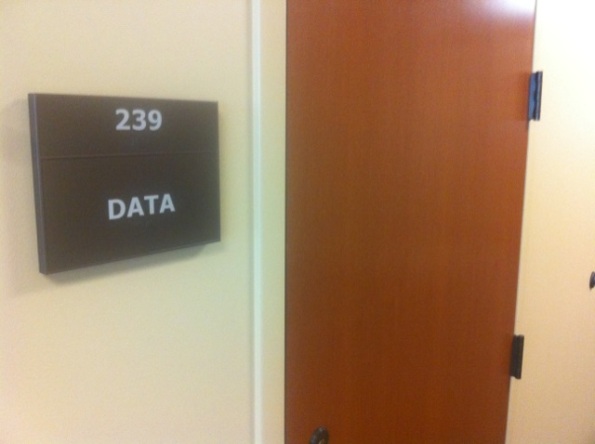Archive
Research tying spatial data to resiliency and development goals
One goal of this blog and our book is to raise awareness and action to develop data sets, data standards, and data portals so that decisions will be increasingly made with geospatial information. One of the chief challenges to this is the persistent lack of geospatial information. It isn’t just “us” as the GIS practitioners talking with each other about this. As far back as 1992, Goodchild, Haining and others were pointing out this very thing in their article in the International Journal of GIS.
More recently, research studies have appeared that tie spatial data to much broader resiliency and development initiatives–specifically, that the lack of data is hindering some much broader planet-wide goals. A white paper entitled Transforming Our World: Geospatial Information: Key to Achieving the 2030 Agenda for Sustainable Development ties the need for geospatial data to meeting the UN Sustainable Development Goals. In yet another example, both of the following studies indicate that the lack of data is one of the biggest obstacles to progress toward the UN development goals.
- United Nations Independent Expert Advisory Group (UN). 2014. A World That Counts: Mobilising the Data Revolution for Sustainable Development. A Report to the UN Secretary General. New York, NY: United Nations, p. 28.
- Stuart, E., E. Samman, W. Avis, and T. Berliner. 2015. The data revolution: finding the missing millions. ODI Research Report 03. London: Overseas Development Institute, p. 51.
The following study states that advances in research on resilience and vulnerability are hampered by access to reliable data.
- Barrett, C. B. and D.D. Headey. 2014. Measuring resilience in a risky world: Why, where, how, and who? 2020 Conference Brief, 1. May 17-19, Addis Ababa, Ethiopia. Washington, D.C: International Food Policy Research Institute.
The biological and conservation community has been particularly active in this area, pointing out the unequal distribution of biodiversity data across the globe, by region, over time, and also in the coverage of certain taxa and ecosystems, such as in the following articles.
- Amano, T., Sutherland, WJ. 2013. Four barriers to the global understanding of biodiversity conservation: Wealth, language, geographical location, and security. Proceedings of the Royal Society B 280. (article 20122649)
-
Gaiji, S., Chavan, V., Ariño, AH., Otegui, J., Hobern, D., Sood, R., Robles, E. 2013. Content assessment of the primary biodiversity data published through GBIF network: Status, challenges, and potentials. Biodiversity Informatics 8(94): 172.
-
Osawa, T., Jinbo, U, Iwasaki, N. 2014. Current status and future perspective on “Open Data” in biodiversity science, Japan. Japanese Journal of Ecology 64: 153-162.If you have others to add to this list, please comment and share!
Key statements about the importance of spatial data
Sometimes it is helpful to have some research results and quotes in support your data advocacy efforts at your own organization–in your promotion of “why this all matters!”. And, of course, why your efforts need to be funded and supported! Here are a few key quotes about the importance of spatial data–and what happens when the data doesn’t exist.
Kathryn Sullivan, former NASA astronaut, recently commented, The power of a map to put time and place and phenomena together, to give it to our brains through the most potent input sensor human beings have — our eyes — is a remarkable accelerator for the comprehension and engagement and use of the data that tell us what’s on Earth, where are things happening on our planet … as reported in Cheney, S. (2017). How GIS can help us understand our changing oceans. (quoted on the 2017 Esri Ocean GIS Forum on https://www.devex.com/news/how-gis-can-help-us-understand-our-changing-oceans-91366).
Another extremely useful statement is, “Advances in research on resilience and vulnerability are hampered by access to reliable data” can be found in Barrett, C. B. and D.D. Headey. 2014. Measuring resilience in a risky world: Why, where, how, and who? 2020 Conference Brief 1. May 17-19, Addis Ababa, Ethiopia. Washington, D.C: International Food Policy Research Institute.
“The lack of data is one of the biggest obstacles to progress toward development goals” was a part of the statements from the United Nations Independent Expert Advisory Group (UN). 2014. A World That Counts: Mobilising the Data Revolution for Sustainable Development. A Report to the UN Secretary General. New York, NY: United Nations, pp.28.
Perhaps the strongest argument for more and better data comes from ODI’s report The Data Revolution: Finding the Missing Millions, where the authors cite numerous cases where inadequate data leads to sub-optimal policy decisions. These cases “confirm some of the anecdotal evidence about the lack of good data in developing country ministries.” The full citation is: Stuart, E., E. Samman, W. Avis, and T. Berliner. 2015. The data revolution: finding the missing millions. ODI Research Report 03. London: Overseas Development Institute, pp. 51. (https://www.odi.org/sites/odi.org.uk/files/odi-assets/publications-opinion-files/9604.pdf).
Based on the research that Jill Clark and I have done in this area over the past decade, I would add to the ODI statement that in developed countries, some similar challenges exist. We have documented those in these blog essays for six years.
I sometimes use the statements from this National Academies of Sciences report and these written by vterrain.org. I have created videos on this topic such as here and articles such as in Directions Magazine here.
My own contribution to these quotes is, “We have made much progress, to be sure, but the world’s increasingly complex and serious issues are not going to wait around another generation for us to get our data act together.”
What are the quotes and studies you are using in your own data advocacy efforts? Please share those in the comments section.
 Photograph by Joseph Kerski.
Photograph by Joseph Kerski.







Recent Comments